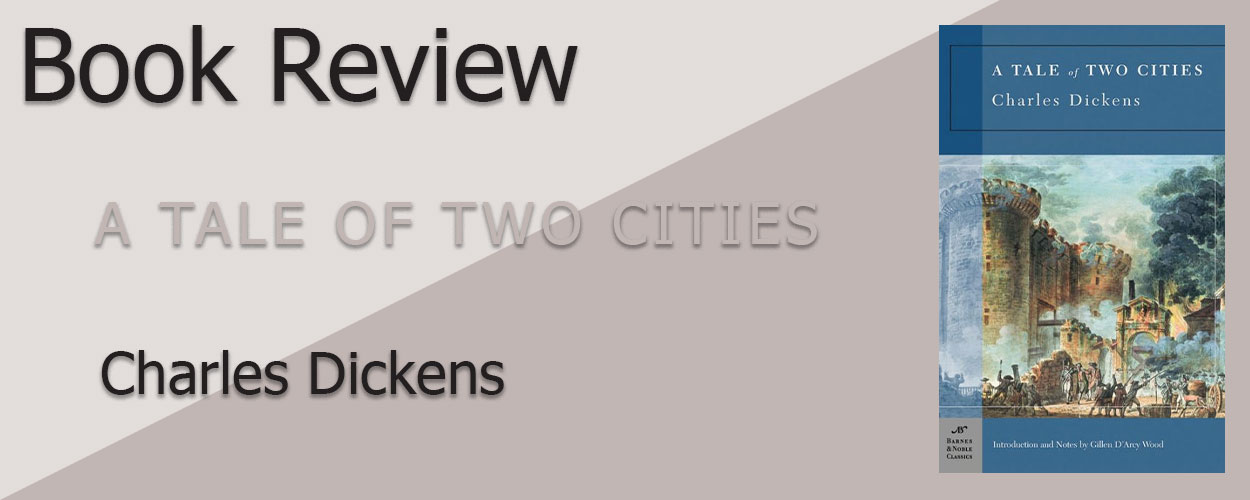

I really liked it
Another Dickens book. At this point, I’ve already read Great Expectations, and while I liked it, I wasn’t fond of it, so I wasn’t too sure about this book going in.
Read: January 8 – January 12, 2024
Genre: Classic, Literary Fiction
Audience: General, Adult
Book contains: death, murder, execution, revolution, implied graverobbing, guillotine, crazy mob, unfair trial
Purchase a copy from Amazon.ca
After an eighteen-year-long untried sentence in the Bastille, Doctor Mannette sees his daughter, Lucie, who he’s never met. When her new husband faces an imprisonment of his own, Doctor Mannette faces old terrors to try and save him.
I wasn’t too sure of this book going in, but I started with the essay/introduction at the beginning which explained the themes and message of the story. Since it was before reading the book, I didn’t have context to the quotations, but it became clearer as I got through the story. It definitely helped my understanding of the chapters.
I listened along to an audiobook on Spotify—a free one narrated by Chris Tester, who did a really good job. Since this is an actual audiobook instead of a podcast, I couldn’t add it to my Audiobooks Playlist for further listening, but I don’t mind that.
This book is written in third person, and while it mostly follow Doctor Mannette and his family, there are chapters that follow other characters as well, such as Marquis St. Evrémonde, and Monsieur and Madam Defarge.
The main characters include Doctor Mannette, his daughter Lucie, a banker named Jarvis Lorry, and Charles Darnay. Other characters include the Defarges and other French revolutionists, and some aristocrats who receive terror and death. The characters are interesting and unique; some I like, some I’m not too sure about. Sydney Carton and Miss Pross are two sort-of side characters that get a lot of attention and both play big roles in the story as it unfolds.
The relationships between characters are also unique. There are healthy relationships, like that of Lucie and her father, who are close, and Lucie and her husband, which is a healthy representation of love and respect. There are also toxic and/or abusive relationships, such as with Jerry and his wife, as he abuses her for praying and teaches his son to abuse her as well.
As this is another of Dickens’ famous works, there’s not much I can say as to the writing quality beyond its natural flow and easy readability. He truly has a way with words. The ease with which the narrator read it also may have added to it. There were, of course, a few sentences that had I been reading on my own, I might’ve put emphasis in the wrong place and therefore not understood the meaning, but the narrator did an excellent job in representing the story to its fullest.
At no point was I bored with the story. Yes, at times I wondered what the whole overarching plot was trying to say, as it seemed to follow a series of chronological events with different characters rather than a set plot, but by the end it was clear to me. The pace was just right.
I recommend this book to history buffs who don’t mind a bit of gore. It may also be enjoyed by those who are intrigued about human nature and what affects it.
Great Expectations by Charles Dickens
Crime and Punishment by Fyodor Dostoevsky
The Scarlet Letter by Nathaniel Hawthorne
The Hunchback of Notre Dame by Victor Hugo
Tigerpetal Press is a small book press dedicated to publishing local authors and poets.